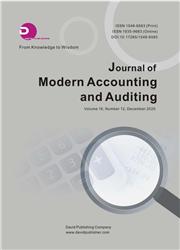Women, Business, and Finance in 19th Century Milan
引用次数: 1
Abstract
This paper contributes to the growing body of literature on the relations between women and the economy market by adding a backward and Mediterranean country on the chart of female engagement in the world of business. With regard to Anglophone settings, scholars found women managing small and medium business, entering trade, purchasing shares and “consols”, supporting firms, lending money, and investing capitals for profit. As for Italy, women’s involvement in economic activities is almost completely unknown because of the paucity of studies on the theme. The way the country industrialized played a role in that, as it drove scholars’ attention mainly if not exclusively to corporate and large enterprises, where men were obviously ad lead. As privileged sources of business and economic historians, such as trade directories, narrative tales, family, and company papers often undervalue if not hiding the female participation in the “public” sphere of the economy, this work draws on fiscal sources, tax rolls, and estate returns in particular. Notwithstanding robust limitations of such documents due to the high rate of evasion and elusion in Italy, their examination unveils the relevance of women’s role not only in family business, but also in “petty” trade and informal finance, all activities that were crucial to the catching up process of a “late joiner” like Italy19世纪米兰的女性、商业和金融
本文通过在女性参与商业世界的图表上添加一个落后的地中海国家,为越来越多的关于女性与经济市场之间关系的文献做出了贡献。关于英语环境,学者们发现,女性管理中小型企业、进入贸易、购买股票和“安慰”、支持公司、放贷和投资资本以获取利润。至于意大利,由于对这一主题的研究很少,妇女参与经济活动的情况几乎完全不为人知。该国的工业化方式在这方面发挥了作用,因为它将学者的注意力主要(如果不是完全)转移到企业和大型企业上,在这些企业中,男性显然是广告的主角。作为商业和经济历史学家的特权来源,如贸易目录、叙事故事、家庭和公司文件,如果不掩盖女性在经济“公共”领域的参与,往往会低估价值,这项工作尤其利用了财政来源、纳税申报单和遗产申报单。尽管由于意大利的逃税率很高,这些文件受到了严格的限制,但对这些文件的审查揭示了妇女不仅在家族企业中的作用,而且在“小额”贸易和非正规金融中的作用的相关性,所有这些活动对像意大利这样的“后加入者”的追赶过程都至关重要
本文章由计算机程序翻译,如有差异,请以英文原文为准。
求助全文
约1分钟内获得全文
求助全文

 求助内容:
求助内容: 应助结果提醒方式:
应助结果提醒方式:


